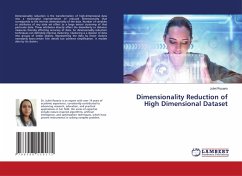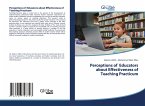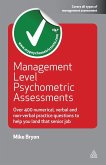Dimensionality reduction is the transformation of high-dimensional data into a meaningful representation of reduced dimensionality that corresponds to the intrinsic dimensionality of the data. Number of variables or attributes of any data set effect to a large extent clustering of that particular data. These attributes directly affect the dissimilarity or distance measures thereby effecting accuracy of data. So dimensionality reduction techniques can definitely improve clustering. Clustering is a division of data into groups of similar objects. Representing the data by fewer clusters necessarily loses certain fine details but achieves simplification. It models data by its clusters.
Bitte wählen Sie Ihr Anliegen aus.
Rechnungen
Retourenschein anfordern
Bestellstatus
Storno








